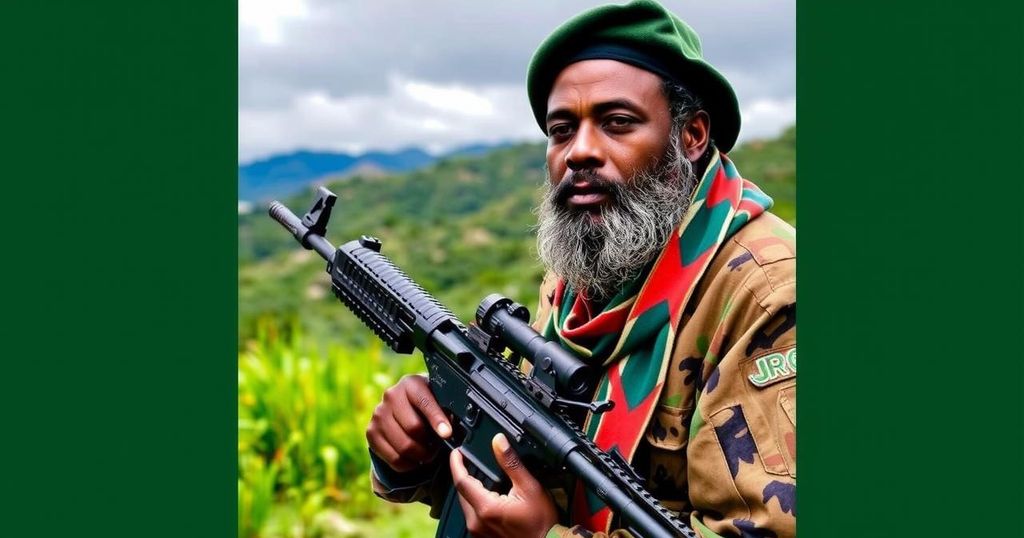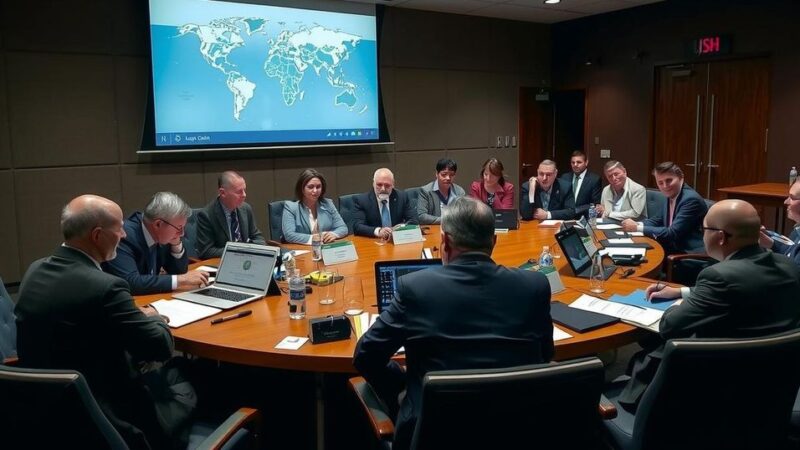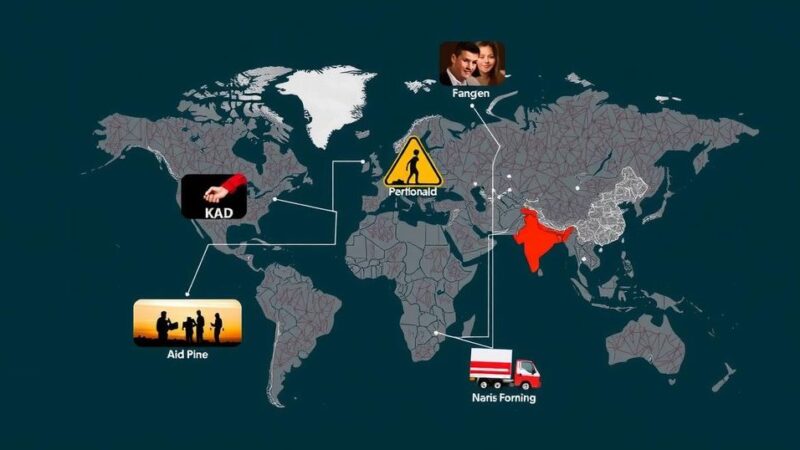The Democratic Republic of Congo’s army claims to have regained control of Kalembe from M23 rebels, who assert they are still in charge. The situation remains tense with ongoing fighting and significant humanitarian implications, as over 2.6 million people have been displaced due to the insurgency in the region.
On Tuesday, the Democratic Republic of Congo’s military declared that it had regained control of the eastern town of Kalembe, which had been captured by M23 rebels the previous day. However, the rebels refuted this claim, asserting they remain in control of the town. Kalembe, located in the Walikale territory of North Kivu, was seized by the M23 group on Sunday morning, when they overpowered both Congolese armed forces and allied pro-government militia. The Tutsi-led M23 has intensified its insurgency in eastern Congo since 2022, with the Congolese government and the United Nations accusing Rwanda of providing support to the group, a claim Rwanda denies. Military spokesperson Sylvain Ekenge reported that government forces reclaimed Kalembe on Monday. Conversely, Corneille Nangaa, leader of the Congo River Alliance which represents the M23, insisted that rebels continue to control the area. Ekenge mentioned that ongoing clashes were taking place between pro-government forces and M23 in regions not fully under army control. To address the situation, military reinforcements were dispatched via helicopter the same morning. The M23’s actions have breached a ceasefire facilitated by Angola, established in August, as confirmed by an Angolan government official. Kabaki Alimasi, a local official from Walikale territory, verified that while the army had regained Kalembe, skirmishes continued in neighboring areas. “The M23 are not far,” he remarked. “We can hear gunfire; the population that fled has not yet returned.” The insurgency in the mineral-rich eastern region of Congo has exacerbated the humanitarian crisis, displacing approximately 2.6 million individuals by the end of September, according to the United Nations.
The situation in the Democratic Republic of Congo’s eastern region has been volatile, particularly with the resurgence of the M23 rebel group. This armed faction, primarily composed of Tutsi fighters, has extended its control in North Kivu province, prompting military responses from the Congolese government. The conflict is rooted in a complex interplay of ethnic tensions, resource management, and political alliances. Regional dynamics are complicated by accusations against Rwanda for allegedly supporting the M23, which both the Congolese army and international observers have noted, intensifying tensions not only within Congo but also among neighboring nations. The humanitarian implications are critical, as the ongoing violence has led to substantial civilian displacement and suffering.
In conclusion, the conflict in Kalembe emphasizes the ongoing instability in the Democratic Republic of Congo’s eastern territories, fueled by the actions of the M23 rebel group and counteractions by the Congolese military. While officials from the army claim to have regained control, the M23’s refusal to concede and reports of continuing violence highlight the fragile nature of the situation. The humanitarian toll is significant, with millions displaced amidst the conflict, underscoring the urgent need for a sustainable resolution.
Original Source: www.voanews.com






